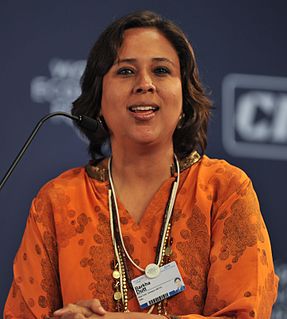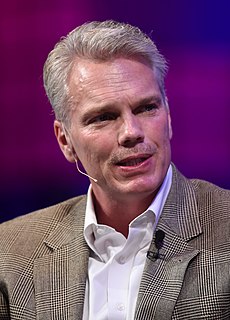A Quote by Jason Calacanis
The future of television is not on television but online. A majority of us are turning to our computers and mobile devices for news and entertainment, Millennials especially.
Quote Topics
Related Quotes
I do not mean to imply that television news deliberately aims to deprive Americans of a coherent, contextual understanding of their world. I mean to say that when news is packaged as entertainment, that is the inevitable result. And in saying that the television news show entertains but does not inform, I am saying something far more serious than that we are being deprived of authentic information. I am saying we are losing our sense of what it means to be well informed.
Television is our culture's principal mode of knowing about itself. Therefore -- and this is the critical point -- how television stages the world becomes the model for how the world is properly to be staged. It is not merely that on the television screen entertainment is the metaphor for all discourse. It is that off the screen the same metaphor prevails. (92)
The days of television as we knew it growing up are over. You have a bigger, wider world audience on the Internet, larger than any American television series. People don't watch television in the same context as before. Nowadays they watch their television on the Internet at their convenience. That's the whole wave, and it's now - not the future.
Television, radio, social media. The 24/7 news cycle plows forward mercilessly on our desks, in our cars and in our pockets. Thousands and thousands of messages and voices bombard us from the moment we wake, fighting for our attention. All we see and hear, all day long, is news. And most of it is bad.
I'm excited about mobile; clearly that's important. Mobile devices are kind of at the opposite end of PCs, in that PCs are pretty open and you can do a fair amount with them, but many mobile devices aren't. We're excited at the idea that we can make the same kind of contribution in the mobile space. So that's one thing coming down the pike.
































